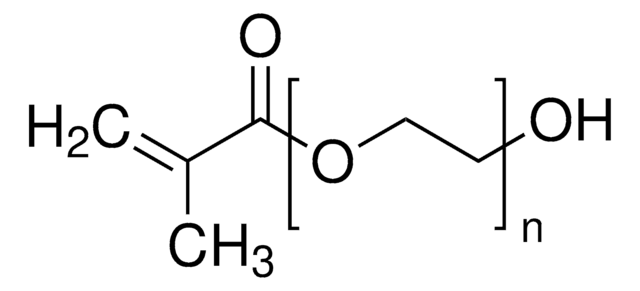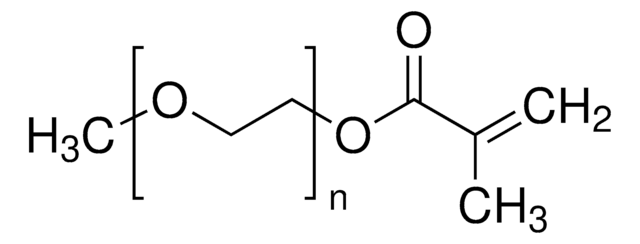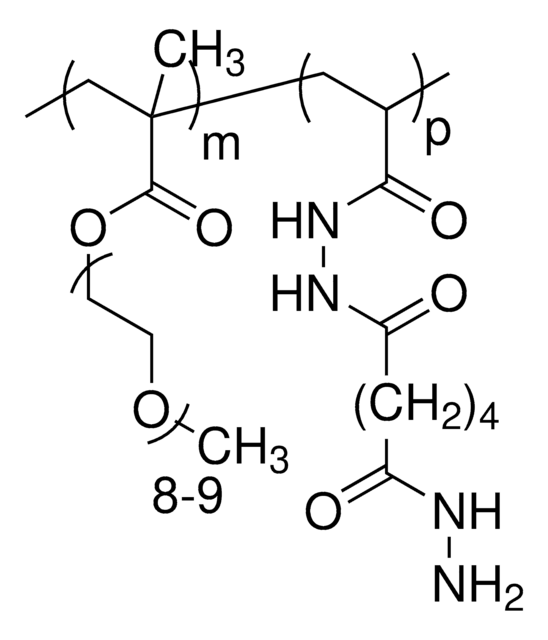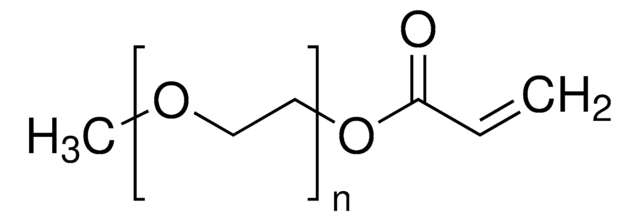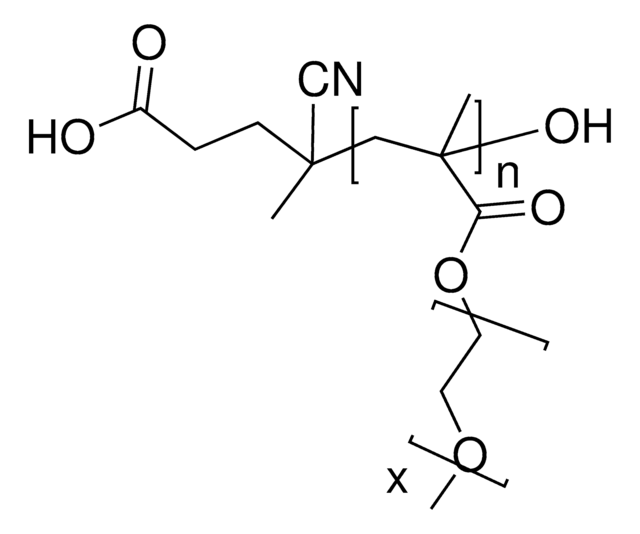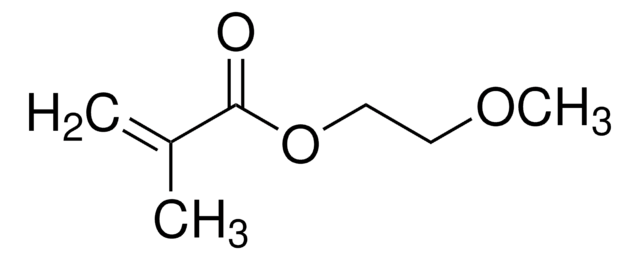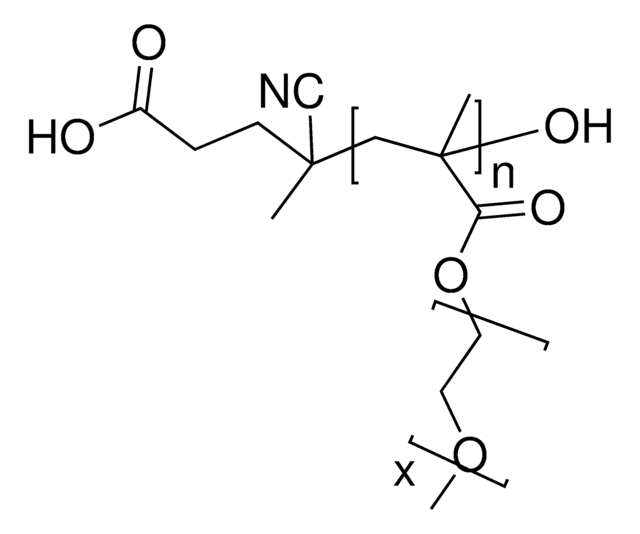推薦產品
形狀
solution
饋電比
(90:10)
顏色
clear colorless to pale yellow
儲存溫度
2-8°C
一般說明
In addition to use in biomolecule-polymer conjugates, PEOGMA has also seen wide spread use in tissue engineering applications, such as hydrogel synthesis. Aldehyde-functionalized PM(EO)2MA-co-OEGMA can be readily used with the corresponding hydrazide-functionalized POEGMA or PM(EO)2MA-co-OEGMA for rapid gelation via reversible hydrazone bond formation. Due to the reversibility of the bond formation and the low viscosity of the precursors, resulting hydrogels can be used as injectable tissue engineering matrices, local drug delivery vehicles for small molecules, or as joint lubricants. In addition, the physical properties of the resulting hydrogels, such as LCST, gelation rates, swelling kinetics, degredation kinetics, and mechanical properties, can all be readily controlled by solution concentration and the ratios of each solution.
Poly(diethylene glycol methacrylate)-co-(oligoethylene glycol methacrylate), (PM(EO)2MA-co-OEGMA) is a comb-shaped, graft copolymer consisting of hydrophilic oligomer polyethylene glycol (PEG) chains grafted to a hydrophobic polymethacrylate backbone. In this material, the PEG chains are either diethylene glycol units or oligomer PEG (n=8-9) units. Resulting material properties can be tuned by controlling the ratio of each component. POEGMA has been suggested as a viable alternative to PEG in biological and biomaterial applications. POEGMA has been reported to improve pharmacokinetic properties of protein and peptide conjugates, enhance the stability and gene silencing efficiency of siRNAs, as an anti-fouling surface for biosensors, and eliminate PEG antigenicity.
準備報告
This product is provided as a 25 wt%solution in water, ready to be diluted for your specific application. Please see the technical bulletin on the product page for dilution instructions and hydrogel preparation instructions.
儲存類別代碼
10 - Combustible liquids
水污染物質分類(WGK)
WGK 3
閃點(°F)
Not applicable
閃點(°C)
Not applicable
A brush-polymer/exendin-4 conjugate reduces blood glucose levels for up to five days and eliminates poly(ethylene glycol) antigenicity.
Qi Y, et al.
Nature Biomedical Engineering, 1, 2-2 (2016)
Imran Ozer et al.
Biomacromolecules, 18(9), 2699-2710 (2017-08-05)
PEGylation, covalent attachment of PEG to therapeutic biomolecules, in which suboptimal pharmacokinetic profiles limiting their therapeutic utility are of concern, is a widely applied technology. However, this technology has been challenged by reduced bioactivity of biomolecules upon PEGylation and immunogenicity
Karthikeyan Gunasekaran et al.
Macromolecular rapid communications, 32(8), 654-659 (2011-04-12)
A thiol-modified siRNA targeting the enhanced green fluorescence protein (eGFP) gene was conjugated with RAFT-synthesized, pyridyl disulfide-functional poly(PEG methyl ether acrylate)s (p(PEGA)s). siRNA-p(PEGA) conjugates demonstrated significantly enhanced in vitro serum stability and nuclease resistance compared to the unmodified and thiol-modified
Fei Xu et al.
Chemical communications (Cambridge, England), 52(7), 1451-1454 (2015-12-10)
A direct, all-aqueous electrospinning method for fabricating degradable nanofibrous hydrogel networks is reported in which hydrazide and aldehyde-functionalized poly(oligoethylene glycol methacrylate) (POEGMA) polymers are simultaneously electrospun and cross-linked. The resulting networks are spatially well-defined, mechanically stable (both dry and wet)
Xudong Deng et al.
Journal of the American Chemical Society, 136(37), 12852-12855 (2014-08-30)
The passivation of nonspecific protein adsorption to paper is a major barrier to the use of paper as a platform for microfluidic bioassays. Herein we describe a simple, scalable protocol based on adsorption and cross-linking of poly(oligoethylene glycol methacrylate) (POEGMA)
我們的科學家團隊在所有研究領域都有豐富的經驗,包括生命科學、材料科學、化學合成、色譜、分析等.
聯絡技術服務